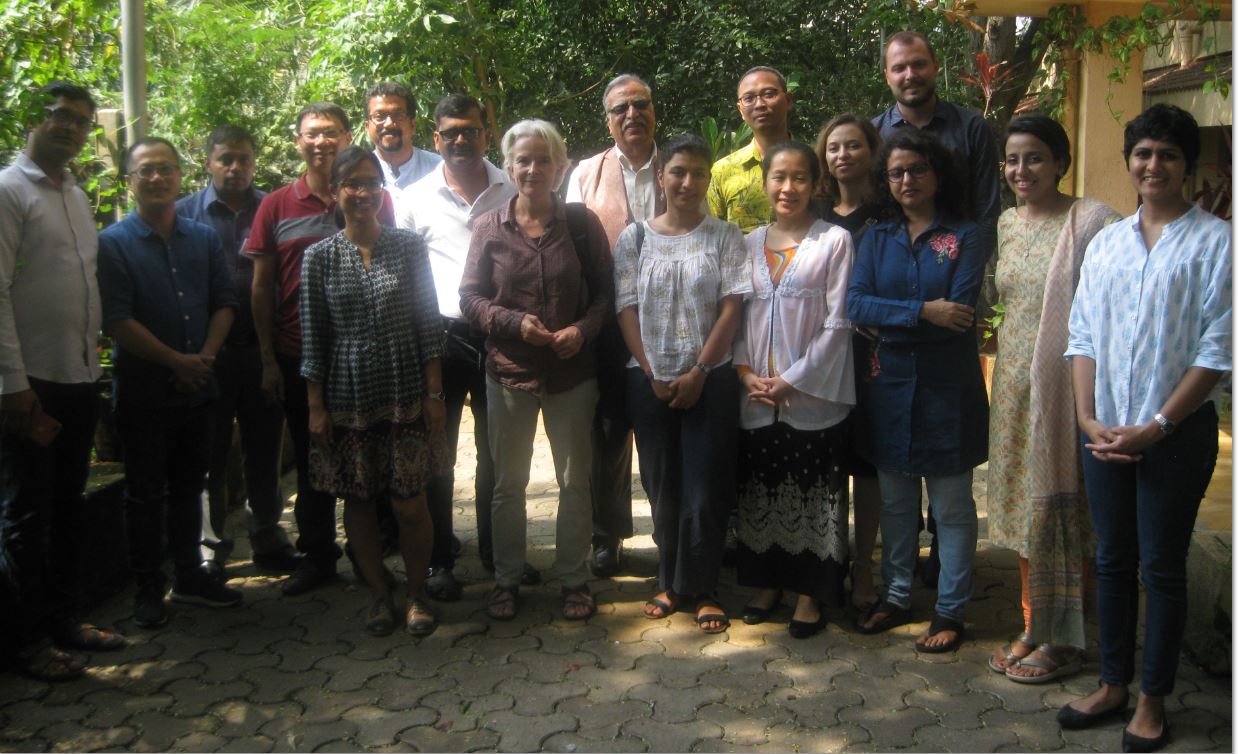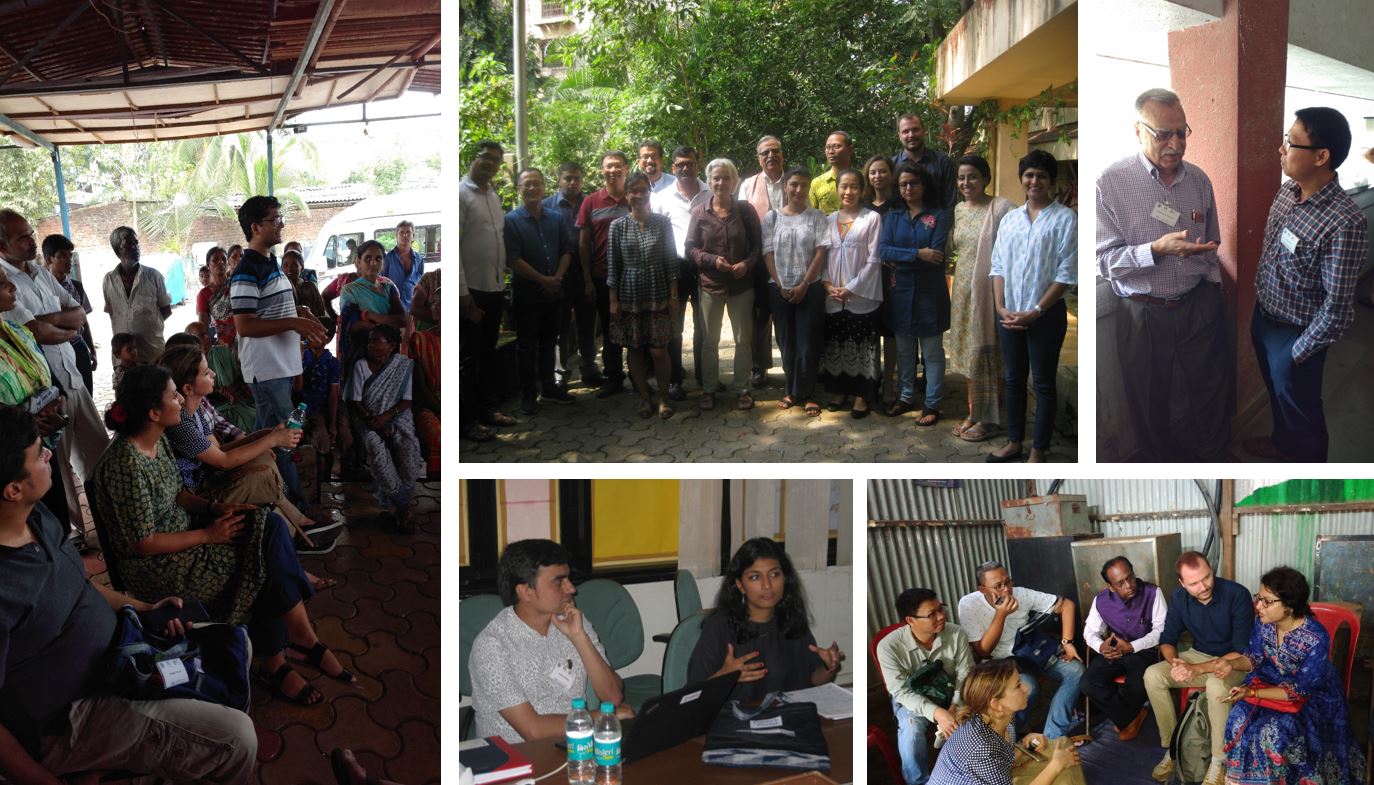
From 4-6 October, 2018, development academics and practitioners from South East Asia and South Asia gathered in Mumbai at the first ever RLC Alumni workshop. Organised jointly by the RLC Campus at TISS Mumbai and the RLC Global Secretariat in Bonn, Alumni presented current science-practice projects for tackling development-related issues in the area of livelihoods innovation.
Further keynote speeches were delivered by researchers from the Centre for Livelihoods and Social Innovation (CLSI), Tata Institute of Social Sciences (TISS), Indo-German Centre for Sustainability (IGCS), German Academic Exchange Service (DAAD), and the Environmental Policy Research Centre, Free University of Berlin.
Right Livelihood Award Laureate Shrikrishna Upadhyay presented and discussed a regional action plan for sustainable livelihood in countries of South Asia. Upadhyay also spoke on a Public Plenary Panel on “Reimagining Sustainable Livelihoods: Creating Synergies through State-University-Civil Society Partnerships”, joined by Dr. Swati Banerjee, RLC Mumbai Coordinator, Prof. Abdul Shaban, Deputy Director of TISS, and Dr. Victor Karunan, Chulalongkorn University, Bangkok.
Karunan, who represented the newest RLC Campus in Thailand, urged the importance of South Asian and South East Asian collaborations, and addressed the role of researchers working together with practitioners: “The economic development model that we have, with its political, cultural and psychological consequences, is at the origin of these imbalances. But it is necessary to find solutions urgently. The time has come to put forward new orientations and not just adaptations of the existing system. To reflect on this and to bring together the forces for change has become a top priority.”
On the second workshop day, all participants visited two civil society organisations in Mumbai:
Ghar Bachao Ghar Banao Andolan (GBGBA) was launched as a response to the massive eviction drive that took place in Mumbai, from December 2004 to February 2005. GBGBA is part of National Alliance of People’s Movements and also becomes part of Government’s ambitious plan of transforming Mumbai into Shanghai, this eviction ruthlessly swept away 90,000 hutments, rendering tens of thousands of poor homeless. One of the founders of NAPM is Right Livelihood Award Laureate Medha Patkar.
UDAAN is a field action initiative of TISS which engages with women at Babanagar in Rafiqnagar, a community which was primarily engaged in waste picking at the vicinity of the Deonar Dumping Ground in Mumbai. The Deonar dumping ground is the largest and oldest dumping ground in India since 1927. UDAAN team is closely working with few of such women and continued efforts are being made to establish a successful venture with the newly formed women’s collective/SHG registered as Kamal Mahila Bachat Gat in Baba Nagar area of Rafiqnagar.
For information regarding the programme and workshop participants, please contact pokraka at uni-bonn.de

Supported by DAAD with funding from the Federal Ministry for Economic Cooperation and Development (BMZ)

